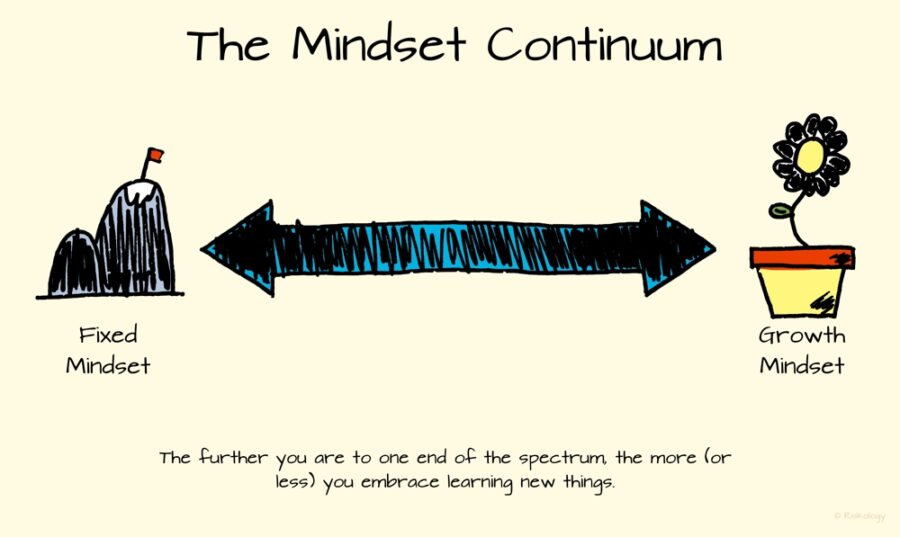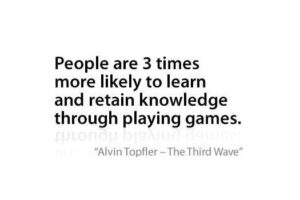Statement A: You can learn new things, but you can’t really change how intelligent you are.
Statement B: You can always substantially change how intelligent you are.
Statement A: You are a certain kind of person, and there is not much that can be done to really change that.
Statement B: No matter what kind of person you are, you can always change substantially.
Consider the two pairs of statements above. Which statement do you tend to agree with more? Be honest. If you find yourself agreeing with statement A more than B, you might be leading your life with a fixed mindset. And if you find yourself leaning more towards statement B, you have adopted a growth mindset in life.
But what do these mindsets mean? Mindsets are your world view. They hugely influence your beliefs, your behaviour and your outlook in life.
In the fixed mindset world, you might consider yourself smart or talented and spend a substantial part of your life proving that to yourself and others. Failure would be a major setback, as it would prove that you are not smart and talented. Stretching yourself and taking risks is something you would avoid because that puts you at the risk of failure. As such, the opportunity to learn new things does not arise and in that sense your learning, your skill set and your growth remains ‘fixed’.
In the growth mindset world, you believe that you can constantly learn new things and develop yourself. As such, failure is about learning from experience and growing. You know you can stretch yourself and with effort and perseverance, learn new things. If an opportunity/ challenge presents itself, you grab it with both hands even at the risk of failure. You are ok with seeking challenges, exposing your deficiencies and in the process ‘grow’.
But are we born with these mindsets or do we develop them over a period of time?
Everyone is born with an intense drive to learn. Look at infants around you – they stretch themselves daily. Not to pick up ordinary skills, but the most difficult tasks of a lifetime, like learning to walk and talk. They don’t worry about making mistakes or humiliating themselves. They walk, they fall, they get up. They just barge ahead.
But unfortunately, pretty soon in life, we as adults put an end to this exuberant learning. In a study, researchers offered four-year-olds a choice: They could redo an easy jigsaw puzzle or they could try a harder one. Even at this tender age, children with the fixed mindset—the ones who believed in fixed traits—stuck with the safe one. Let’s look beyond the puzzle set and consider their behaviours as they grow up – these are the exact same people who do not go above and beyond their defined roles, do not stretch themselves to take on new projects at work and in general, are stuck in their comfort zones.
The good news is, you can make the ‘choice of adopting a growth mindset’ pretty much anytime in life. It takes a little bit of courage and oodles of faith. Here are some ways to push yourself out of your comfort zone bit by bit
- Surround yourself with critics – Much as you would love the aye! Aye! Of worshippers, do surround yourself with critics who challenge your ideas and actions. Welcome their criticism and give them a genuine ear.
- Take up small challenges everyday and enjoy them. It could be cooking a new dish, attempting to play an instrument, doing a crossword – anything which does not guarantee success. Try it, enjoy it and try it again! You will see the same mindset creeping into other aspects of your life slowly.
- Open your eyes to your flaws and embrace them – Noone is perfect, neither are you. Observe yourself and notice your flaws. And remember, the magic is not in being good, but in becoming good.
- Be patient – It takes time and constant effort to reach your potential. Infact, you may never reach your ‘potential’ as no one really knows what it is! Pick up a skill you would like to develop and invest time and energy to develop it. Importantly, don’t give up.
- Believe you are special but do not translate that to ‘being better than others’. Give up any urge you may have to prove yourself to anyone at all. Watch out for such behaviour and nip it in the bud.
As Benjamin Barber said, “I don’t divide the world into the weak and the strong, or the successes and the failures. . . . I divide the world into the learners and nonlearners.” Let’s be on the side of the learners.








Leave a Reply
Your email is safe with us.
You must be logged in to post a comment.